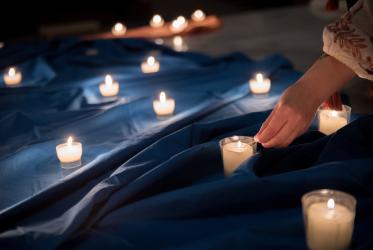By Fredrick Nzwili*
Church sources say the impact of the floods is being felt most in the Greater Upper Nile, a region which includes Unity, Upper Nile and Jonglei states. Here, homes, schools, churches, farms and roads have been submerged. The disaster has affected at least 850,000 people, according to the UN, including some families displaced by floods, famine and insecurity.
More than 8 million are in need of humanitarian aid due to conflict and climate change in the world’s youngest nation, the UN estimates.
“We need to respond. I appeal to the global church to hear the plea of these people and provide support,” said Rev. James Oyet Latansio, a Roman Catholic priest who is general secretary of the South Sudan Council of Churches. “Support has been low. We think it’s due to donor fatigue the world over, but we believe God will intervene.”
According to Latansio, most of the areas are under water and the people cannot go back to their homes. This is despite that an earlier peace agreement created a suitable environment for people to return to their areas. Some experts project that it may take 15 years for the water to evaporate naturally. For agencies, that would be too long and ways have to be found to drain the water.
South Sudan is a nation of about 11.2 people. About 60 percent are Christians, while about 33 percent follow African traditional regions. Muslims make up about 6 percent of the population. Most of the population is rural.
For this country, it’s a triple challenge as conflict, floods and more recently the coronavirus (COVID-19 pandemic complicate the people’s lives.
“I think the global attention on the coronavirus is overshadowing the response to the South Sudan floods, but there is a major disaster in the greater Upper Nile Region. Humanitarian aid is urgently needed. Please come to the aid of the people,” said Rev. Dr Isaiah Majok Dau, presiding bishop of the South Sudan Pentecostal Church.
The flood disaster is the latest challenge in world’s youngest nation which is struggling to recover from a civil war triggered in 2013, two years after its independence. A series of peace of agreements have calmed most regions, but inter-communal conflicts over pasture and revenge attacks are still continuing, according to church sources.
With the water continuing to rise, the displaced people are moving to higher grounds where they are assured of safety, according to church leaders. But on the grounds, the populations are without basic needs such as food, medicines, safe water and shelter, among other urgent needs.
“There is major congestion in those grounds. There are no services such as schools or health services. Mosquito nets are needed to protect the people from mosquitoes,” said Dau.
According to the church leaders, floods of similar intensity were witnessed in South Sudan in 1964, but the flooding did not reach the latest levels.
* Fredrick Nzwili is an independent journalist based in Nairobi, Kenya.



